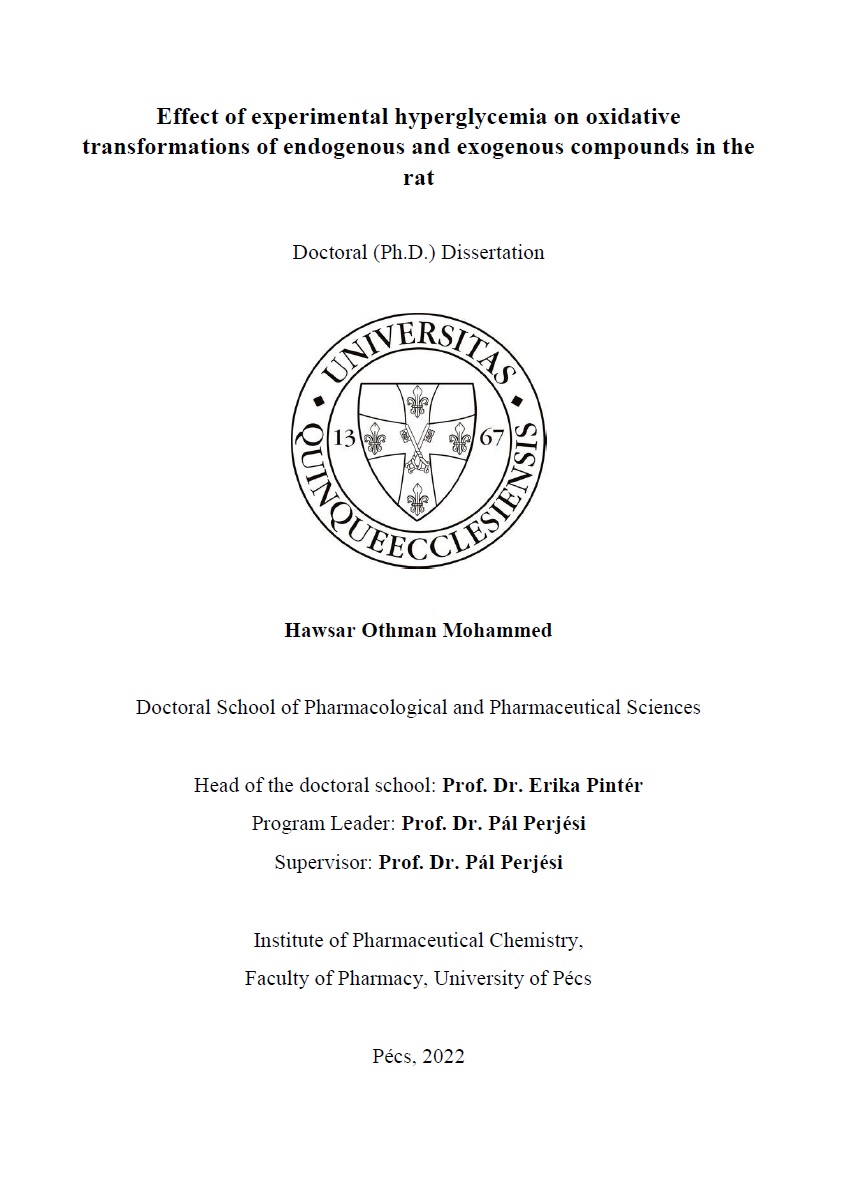Effect of experimental hyperglycemia on oxidative transformations of endogenous and exogenous compounds in the rat
Abstract
Diabetes mellitus (DM) is a common disease with a complex
metabolic and endocrine system influencing a large proportion of the
global population. DM is described by its high blood glucose level
because of insufficient action and secretion of insulin from beta-cells
of the pancreas. Hyperglycemia is considered a source of the
development of diabetic complications via altering a variety of
signaling pathways, leading to the induction of reactive oxygen
species, oxidative stress, and cell death. A high rate of reactive oxygen
species (ROS) generated from the inducted oxidative stress is
considered to contribute to the pathogenesis of diabetic patients.
In addition, besides their insulin injection and/or
consumption of diabetic medications, patients are supposed to use a
variety of other medicines. However, how and to what degree diabetes
affects the metabolism of drugs has not been well studied.
Pathophysiological changes during diabetes can affect various drugs'
absorption, distribution, metabolism, and excretion. However,
previous studies have provided inconsistent data for multiple drugs,
possibly due to variations in patient characteristics or control of
patients’ diabetes at the time of data collection.

